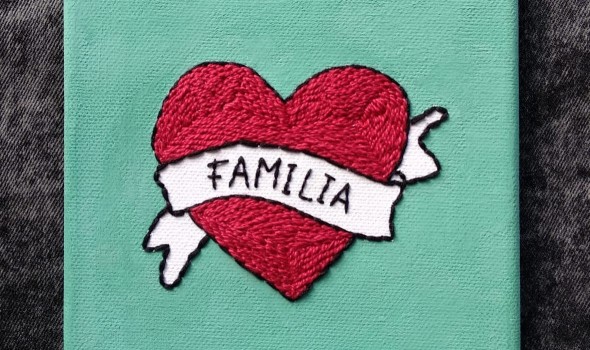We're all migrants now when it comes to staying in touch
We're all migrants now when it comes to staying in touch

Many people have had to find new ways to stay in touch with family and friends during the Covid-19 pandemic. Even if someone lives around the corner, they are now out of reach.
For migrants, this situation is not new. With our families thousands of miles away, online communication is all we’ve ever had, And for us, it’s not a temporary situation.
Yes, some of us chose to move away, chose to live in another country. But the decision to leave our loved ones behind was one of the hardest we ever had to make. Being separated from our families is the price we have to pay to find a better life – and it’s a very heavy price.
We have to cope with loneliness and a feeling of isolation on a daily basis. Perhaps this is a chance for us to share those experiences and offer some advice for coping – and for non-migrants to appreciate how life is for us, separated from our loved ones.
I’m an international student, and before the lockdown happened, I saw my family only once a year, due to financial reasons and commitments around my studies.
We’ve always been very close, and despite the distance, we’ve been able to keep that closeness. We spend hours on the phone; and Sundays, birthdays and holidays are all mostly spent that way. But I like voice messages the best, because you get to play them over and over again.
My family learned to use WhatsApp for my sake, to keep in touch easily, and even my grandma, who is 90 years old, uses it with help. My mother holds the phone for her and I get the most heartwarming messages, full of advice and good wishes. She loves to sing and knows hundreds of songs from her youth which she often records for me. It makes my day every time I receive one, and I end up playing it lots and lots of times. For Christmas she recorded carols for me, and it makes her happy to know this brings so much joy to my heart.
My dad is usually the calm, composed one, but even he can get emotional with the distance, though he always tries to hide it. My mom is the chatty one and has the most patience in the world. She sends me recipes and instructions on how to cook them in WhatsApp messages, and repeats the information over and over again, to make sure I got it right. She is the one keeping me up to date with everything that happens in my family, city and country, and the one always ready for a gossip at any time of the day.
Hearing the voice of someone you love can help lift your spirit and improve your mood when you are going through hard times. It’s reassuring and a way of feeling close to them, even when there’s so much physical distance.

During this pandemic, our routine hasn’t changed and we’re as close as ever. As I’m sure people around the world have realised during this lockdown, when it’s all you have, speaking to your family online becomes your greatest treasure. It’s how I – and many other migrants – have learned to cope with the distance and it has made us strong.
I know of others who are using even more inventive ways to stay connected. For example, Andrea, a Spanish woman I know of has been knitting and embroidering beautiful, heartfelt messages to send to family and friends back home.
If you are not a migrant, I hope you can learn something from our years of experience of being apart from our families, yet staying connected. And when this lockdown ends and you can meet your families and friends again, spare a thought for those of us who don’t have that option, who will continue to spend our Sundays on WhatsApp, speaking with our families thousands of miles away.
Written with input from Ciaran and Andrea.
TOP IMAGE: One of the embroidered messages (meaning "family") made by Andrea to send to her family in Spain.
SECOND IMAGE: Andrea knitted these for the day before children in Spain were finally allowed out to play after being in strict lockdown for two months.


